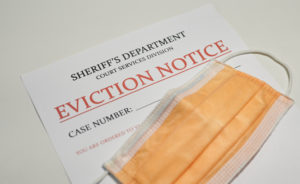
If you’re experiencing severe back pain, there are many potential reasons. Some of the most common causes include muscle strain, bulging discs, an injury from a car accident or fall, and bad posture. Back pain can impact your quality of life, and doctors may recommend lifestyle changes like weight loss or prescribe medication to help treat the problem.
In rare cases, your back pain is a sign of something more serious, and your life may be at risk if you don’t seek immediate treatment. A spinal cord abscess is a rare condition with a mortality rate of up to 20%, meaning that 1 in 5 patients with a spinal abscess will, unfortunately, pass away.
What is a Spinal Cord Abscess?
A spinal cord abscess occurs when pus forms around the spinal cord, often due to a previous infection or a complication of an existing condition. The disease can begin in the bone, and as the abscess gets bigger, it affects the spinal cord. It can cause headaches, fever, nausea, fatigue, trouble walking, and even paralysis. It also frequently causes back pain. According to The Mayo Clinic, back pain is the third-most common reason people visit a doctor.
Who Is At Risk?
While spinal cord abscesses can happen to anyone, certain groups and people are at risk. It can result from an existing condition, leading to what doctors call comorbidities. Some common reasons for spinal abscess are below.
- Complications from back surgery
- Spinal tap complications
- Infection in another part of the body
- Injecting drugs
- Immunodeficiency
- Bone infections
A spinal cord abscess can be treated by draining the abscess, giving antibiotics, and performing surgery. In less serious cases, a patient can recover in 4 to 6 weeks.
How A Spinal Cord Abscess Is Diagnosed
A spinal cord abscess is usually diagnosed by MRI, CT scan and complete blood count tests. Early intervention is needed to stop the abscess from causing permanent complications or even death. Unfortunately, many medical professionals do not diagnose spinal cord abscesses in time. One study estimates that 75% of people with spinal cord abscesses are misdiagnosed when visiting a doctor’s office. If someone complains of back pain and isn’t taken seriously, it can be fatal. If your back pain is combined with symptoms like fever, leg weakness, or difficulty urinating, your healthcare provider should realize the potential seriousness of your problem and move quickly.
What If Your Doctor Doesn’t Diagnose?
Doctors are experts in the medical field, but that doesn’t mean they can’t make mistakes. It’s essential to be firm and advocate for yourself, so you don’t find yourself a victim of medical malpractice. If a doctor gives you a diagnosis and you have concerns, ask questions, and don’t be afraid to do your own research. If you’re worried about your back pain or feel like your symptoms are being belittled, get a second opinion. Because spinal cord abscesses are so rare, your doctor may not run the necessary tests.
A case study published in the U.S. Agency for Healthcare Research and Quality illustrates this point. A 30-year-old woman went to the emergency room with back pain. Doctors ordered an MRI and diagnosed her with disc herniation and lumbar degenerative joint disease. They sent her home with muscle relaxants, opioids, and NSAIDs (drugs like Motrin or Aleve).
One week later, she visited an orthopedist who agreed with the hospital’s diagnosis. Ten days later, she visited the emergency room numb from the waist down and feverish. A second MRI found that she had a spinal abscess. She was rushed into surgery but had several complications and now uses a wheelchair as a result.
The seriousness of the diagnosis can’t be overstated. If you have a spinal cord abscess that went undetected after visiting a doctor’s office, you should consult an experienced medical malpractice attorney. An attorney can help you determine if taking legal action is necessary. After a missed spinal cord abscess diagnosis, the complications endured are often life-changing and can permanently damage your life.
If you’ve been injured and feel that it could be due to medical malpractice, reach out to D’Arcy Johnson Day. We are a top New Jersey law firm with extensive experience in handling medical malpractice cases. Contact us online or call (609) 641-6200 for more information or a free consultation.

As a partner with D'Arcy Johnson Day, Andrew D'Arcy has been involved in some of the nation’s most high-profile cases and investigations. His practice includes serious automobile accidents, medical malpractice, wrongful death and product defect cases. Andrew has been personally responsible for numerous multi-million dollar settlements and verdicts on behalf of his clients. He has been recognized by his peers as an "AV" rated attorney, the highest possible rating given by Martindale-Hubbell publication. Andrew has been named a "Super Lawyer" by New Jersey Monthly magazine each year consistently since 2013.















Comments for this article are closed.